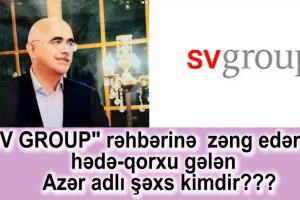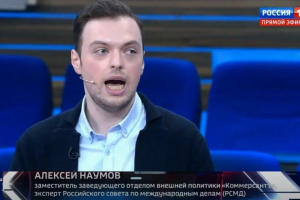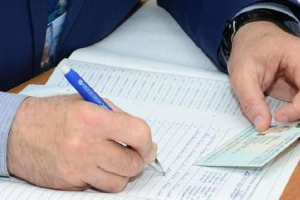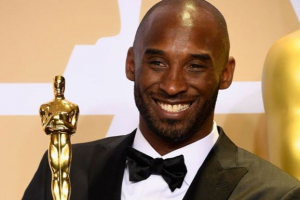


Mr. Trump suggested in a series of early morning messages on Twitter that he had no need to use the pardon power at this point but left the option open. Presidents have the authority to pardon others for federal crimes, but legal scholars debatewhether a president can pardon himself. Mr. Trump’s use of the word “complete” seemed to suggest he did not see a limit to that authority.
“While all agree the U.S. President has the complete power to pardon, why think of that when only crime so far is LEAKS against us,” he wrote on Twitter. “FAKE NEWS.”
The Washington Post reported in recent days that the president and his advisers had discussed pardons as a special counsel intensifies an investigation into whether associates of Mr. Trump and his campaign conspired with Russia to intervene in the 2016 presidential campaign.
Mr. Trump also responded on Saturday to an article by The Post reporting that Mr. Sessions may have discussed campaign activities and policy with the Russian ambassador, Sergey I. Kislyak, last year, despite his public statements to the contrary. In the article, The Post cited intercepted communications between Mr. Kislyak and his home office in Moscow. Mr. Trump excoriated the newspaper and expressed no concern about his attorney general’s conduct.
“A new INTELLIGENCE LEAK from the Amazon Washington Post, this time against A.G. Jeff Sessions,” Mr. Trump wrote. “These illegal leaks, like Comey’s, must stop!”
The president was equating the report in The Post, which is owned by Jeff Bezos, the founder of Amazon, to a decision by James B. Comey, whom Mr. Trump fired as F.B.I. director, to leak contents of a memo he wrote describing a conversation he had with the president. Mr. Comey has said the memo was unclassified and therefore not illegal to disclose.
The message about the Post story was quickly followed by one assailing The New York Times. “The Failing New York Times foiled U.S. attempt to kill the single most wanted terrorist, Al-Baghdadi,” he wrote. “Their sick agenda over National Security.”
Mr. Trump did not specify what he meant, but he may have been referring to a Fox News report, a version of which aired about 25 minutes before the president’s tweet, about comments by a top commander at a conference on Friday.
Gen. Tony Thomas, head of the military’s Special Operations Command, said at the Aspen Security Forum that American forces were “particularly close” to Abu Bakr al-Baghdadi, the leader of the Islamic State, after a 2015 raid recovered information about the militant group.
“That was a very good lead,” General Thomas said, according to the Fox report. “Unfortunately, it was leaked in a prominent national newspaper about a week later and that lead went dead.”
Fox reported that the general appeared to be referring to a June 2015 report by The Times that said American intelligence agencies had “extracted valuable information” from the raid. The story reported that United States forces had recovered “laptops, cellphones and other materials,” including four to seven terabytes of data. It also said that Mr. Baghdadi and other Islamic State leaders had used their wives to pass information to one another to avoid electronic surveillance.
The Pentagon raised no objections with The Times before the story was published, and no senior American official ever complained publicly about it until now.
The Russian military said last month that it might have killed Mr. Baghdadi in an airstrike in Syria, but Defense Secretary Jim Mattis said on Friday that he believed Mr. Baghdadi was still alive. The White House made no comment when asked for clarification about the president’s tweet.
Mr. Trump’s posts came shortly before he flew to Norfolk, Va., where he presided over the commissioning of the Gerald R. Ford, the nation’s newest aircraft carrier.
The Post reported that Mr. Kislyak told superiors in Moscow that he had discussed campaign-related matters, including policy issues important to Moscow, with Mr. Sessions during the campaign, contrary to Mr. Sessions’s public assertions. Mr. Sessions, who was advising Mr. Trump on foreign policy at the time, met at least twice with Mr. Kislyak and failed to disclose those contacts during his Senate confirmation hearings. After news reports about them were published, he said the meetings were not related to the campaign.
Sarah Isgur Flores, a Justice Department spokeswoman, said in a statement to The Post and other news organizations that she could not comment “on the reliability of what anonymous sources describe in a wholly uncorroborated intelligence intercept.” She added that Mr. Sessions “never met with or had any conversations with any Russians or any foreign officials concerning any type of interference with any campaign or election.” She did not deny that Mr. Sessions discussed campaign or policy issues more generally with Mr. Kislyak.
The revelation of Mr. Sessions’s meetings with Mr. Kislyak in March prompted the attorney general to recuse himself from overseeing the Justice Department investigation into Russian meddling in last year’s election and any possible collusion with associates of Mr. Trump. The president has been upset about that recusal ever since and told The Times in an interview on Wednesday that he never would have appointed Mr. Sessions had he known the attorney general would step aside.
In the interview, Mr. Trump faulted Mr. Sessions for his misleading testimony. “Jeff Sessions gave some bad answers,” the president said. “He gave some answers that were simple questions and should have been simple answers, but they weren’t.”
In his tweets on Saturday morning, he offered no concern that Mr. Sessions had not been fully forthcoming. Instead, as he often does, Mr. Trump tried to turn attention back to his opponent from last year.
“So many people are asking why isn’t the A.G. or Special Council looking at the many Hillary Clinton or Comey crimes,” he wrote, referring to Robert S. Mueller III, the special counsel now leading the Russia inquiry. “33,000 e-mails deleted?”
He added: “What about all of the Clinton ties to Russia, including Podesta Company, Uranium deal, Russian Reset, big dollar speeches etc.”
Mrs. Clinton was investigated last year by the F.B.I. for using a private server to route official email. More than 30,000 messages that she and her team deemed personal and unrelated to her service as secretary of state were deleted. As F.B.I. director, Mr. Comey said Mrs. Clinton had acted irresponsibly but that he would not seek criminal charges against her.
The president also referenced his eldest son, Donald Trump Jr., who met with several Russian figures during last year’s campaign after being promised incriminating information about Mrs. Clinton.
“My son Donald openly gave his e-mails to the media & authorities whereas Crooked Hillary Clinton deleted (& acid washed) her 33,000 emails!” he wrote.
The younger Mr. Trump released emails setting up the Russia meeting only after being informed that The Times had obtained them and was about to publish them itself.














